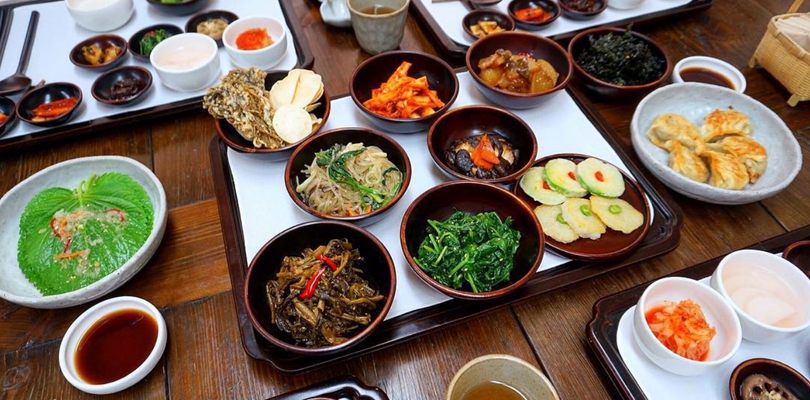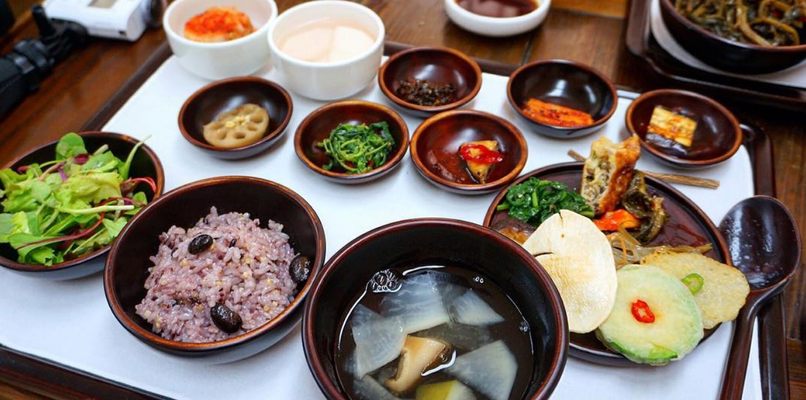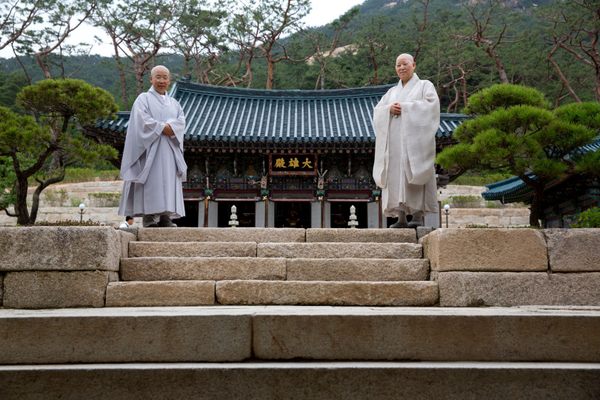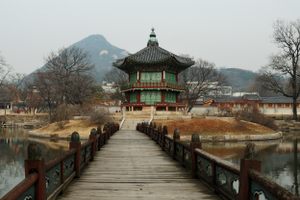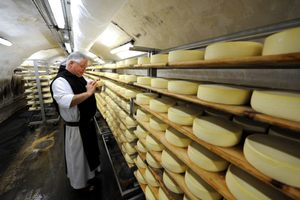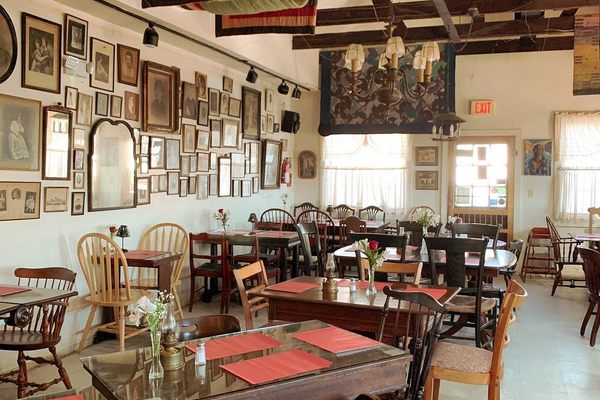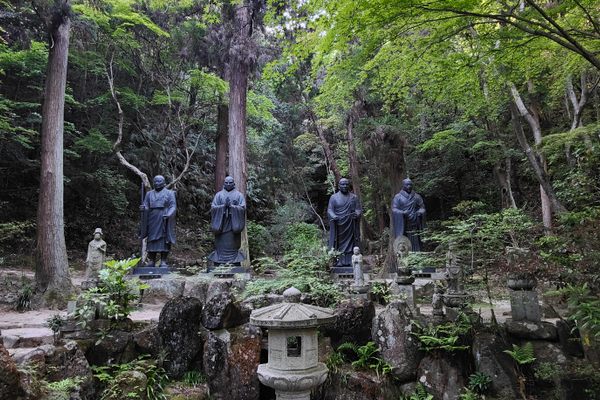About
Jinkwansa, a 12th-century Buddhist temple, sits atop a mountain in Seoul's Bukhansan National Park. Women with shaved heads and gray robes run the entire operation. These nuns are renowned for their cuisine, which epitomizes the ancient art of Korean temple fare. It's vegan and free of MSG, garlic, onion, and leeks. Buddhist teaching advises eschewing these ingredients, as they are believed to incite lust, among other things. Food prepared at the temple, on the other hand, is meant to further meditation. And though many monasteries follow the same principles, high-profile visitors from around the world visit Jinkwansa specifically in search of culinary wisdom.
Though monastic cuisine has a deserved association with asceticism, Korean temple cuisine is far from bland. Nuns ferment, spice, dry, marinate, and pickle ingredients to create all sorts of pungent, spicy, and tangy dishes. They also ferment up to 30 different soybean pastes at a time, some of which have been aging beneath the sun for 50 years. Visitors have mentioned tasting more than 25 dishes in one meal, sampling fermented radishes, chestnut stew, crispy greens, marinated tofu, mushroom fritters, and sweet sticky rice squares sprinkled with fruit and nuts. The lattermost treat serves as the nuns' energy-replenishing staple on head-shaving day.
The female order has maintained its status as the preeminent location for temple cuisine for centuries. In Korean Buddhism, monastic mealtime is a practice referred to as Baru Gongyang, or “offering.” Diners eat in silence from a wooden bowl, using wooden chopsticks. Historically, Jinkwansa hosted suryukje, an annual ritual in which the dead are led to heaven through chanting and food ceremonies, and lauded monks stayed on-site. Thus, the nuns honed their cooking skills and reputation feeding large groups. Today, anyone can reserve a stay at Jinkwansa, take cooking classes, and tour the property. And despite the establishment's increased popularity, nuns continue to cook with vegetables grown on temple grounds.
Related Tags
Published
October 15, 2018
Sources
- http://nymag.com/travel/2014/spring/seoul-jinkwansa-south-korea/
- http://www.koreatimes.co.kr/www/news/culture/2014/09/386_164944.html
- https://www.npr.org/sections/thesalt/2015/07/23/425386811/detoxing-the-buddhist-way-nuns-preserve-art-of-korean-temple-food
- https://koreantemplefood.com/korean-temple-food/#Barugongyang
- https://www.foodandwine.com/articles/david-chang-vegetarian-korean-dishes

